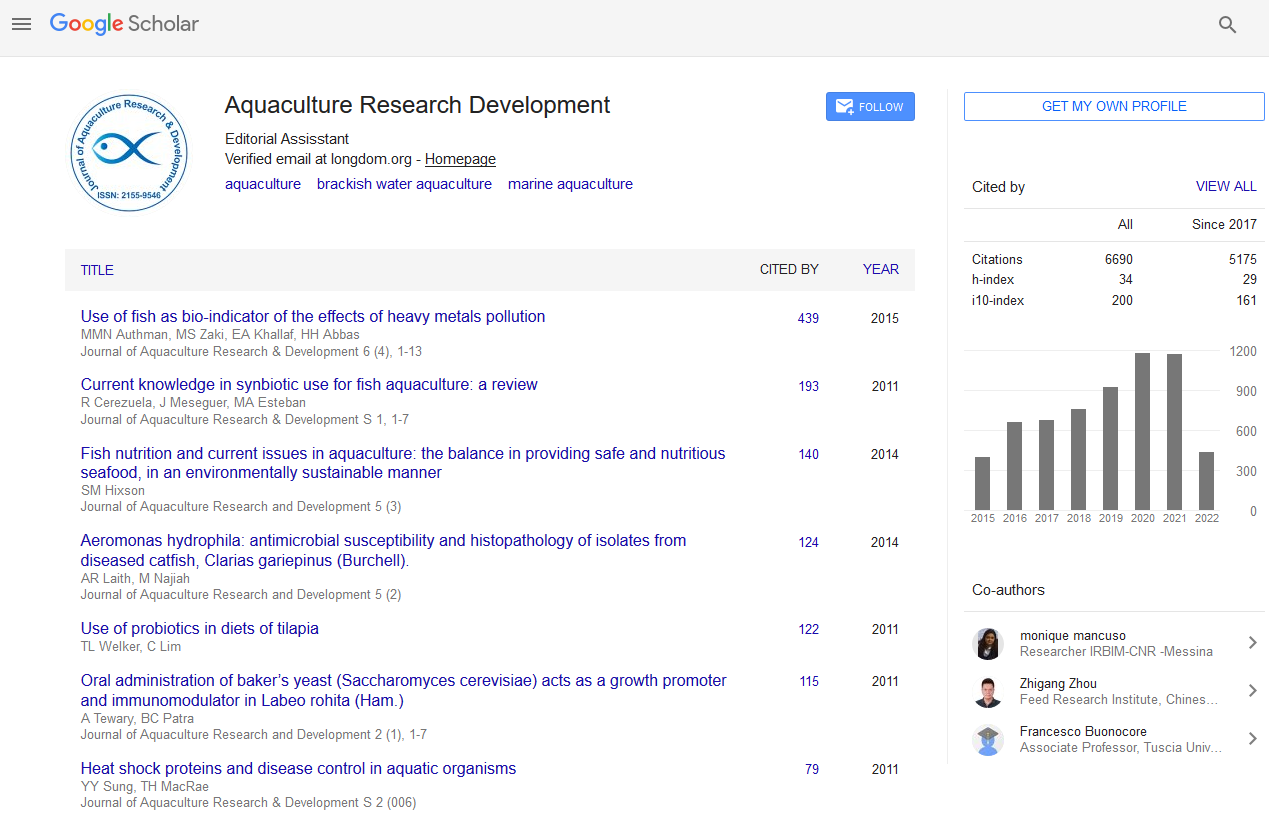PMC/PubMed Indexed Articles
Indexed In
- Online Access to Research in the Environment (OARE)
- Open J Gate
- Genamics JournalSeek
- JournalTOCs
- Scimago
- Ulrich's Periodicals Directory
- Access to Global Online Research in Agriculture (AGORA)
- Electronic Journals Library
- Centre for Agriculture and Biosciences International (CABI)
- RefSeek
- Directory of Research Journal Indexing (DRJI)
- Hamdard University
- EBSCO A-Z
- OCLC- WorldCat
- Scholarsteer
- SWB online catalog
- Virtual Library of Biology (vifabio)
- Publons
- MIAR
- University Grants Commission
- Euro Pub
- Google Scholar
Useful Links
Share This Page
Journal Flyer

Open Access Journals
- Agri and Aquaculture
- Biochemistry
- Bioinformatics & Systems Biology
- Business & Management
- Chemistry
- Clinical Sciences
- Engineering
- Food & Nutrition
- General Science
- Genetics & Molecular Biology
- Immunology & Microbiology
- Medical Sciences
- Neuroscience & Psychology
- Nursing & Health Care
- Pharmaceutical Sciences
Abstract
Effects of Dietary Partial Replacement of Tuna Oil by Corn Oil in Formulated Diets for Growth Performance and Proximate Composition of Juvenile Spotted Babylon Babylonia areolata under Hatchery Conditions
Sirusa Kritsanapuntu, Nilnaj Chaitanawisuti and Wannanee Santaweesuk
A 120-day feeding experiment was conducted to determine the effects of dietary partial replacement of tuna oil by corn oil at different ratios in formulated diets, by which growth performance and proximate composition of juvenile spotted babylon Babylonia areolata was analyzed. Four isonitrogenous and isolipidic diets were formulated with 10% lipid derived from the following lipid sources: diet A (100% tuna oil without corn oil (control), diet B: 50% tuna oil and 20% corn oil, diet C: 30% tuna oil and 40% corn oil and diet D: 10% tuna oil and 60% corn oil. This study showed that all formulated diets were well accepted by the snails throughout the culture period. There were no significant differences in body weight gain, shell length increment and growth rate among the feeding experiments. No significant differences were observed in feed conversion ratio among the dietary treatments ranging from 4.35 to 4.77. Survival was high ranging from 98.00% to 100% and no significant differences in survival were observed. At the end of the experiment, crude protein and fat contents of whole body weight of snails were not statistically different among the feeding experiments. Crude protein and fat of snails fed four experimental diets ranged from 61.38 to 61.48% and 5.36% to 5.39%, respectively. This study indicated partial replacement of tuna oil by corn oil in formulated diets have no effects on growth performance but fat content of the whole body reduced to half than those contained in formulated diets.A 120-day feeding experiment was conducted to determine the effects of dietary partial replacement of tuna oil by corn oil at different ratios in formulated diets, by which growth performance and proximate composition of juvenile spotted babylon Babylonia areolata was analyzed. Four isonitrogenous and isolipidic diets were formulated with 10% lipid derived from the following lipid sources: diet A (100% tuna oil without corn oil (control), diet B: 50% tuna oil and 20% corn oil, diet C: 30% tuna oil and 40% corn oil and diet D: 10% tuna oil and 60% corn oil. This study showed that all formulated diets were well accepted by the snails throughout the culture period. There were no significant differences in body weight gain, shell length increment and growth rate among the feeding experiments. No significant differences were observed in feed conversion ratio among the dietary treatments ranging from 4.35 to 4.77. Survival was high ranging from 98.00% to 100% and no significant differences in survival were observed. At the end of the experiment, crude protein and fat contents of whole body weight of snails were not statistically different among the feeding experiments. Crude protein and fat of snails fed four experimental diets ranged from 61.38 to 61.48% and 5.36% to 5.39%, respectively. This study indicated partial replacement of tuna oil by corn oil in formulated diets have no effects on growth performance but fat content of the whole body reduced to half than those contained in formulated diets.


